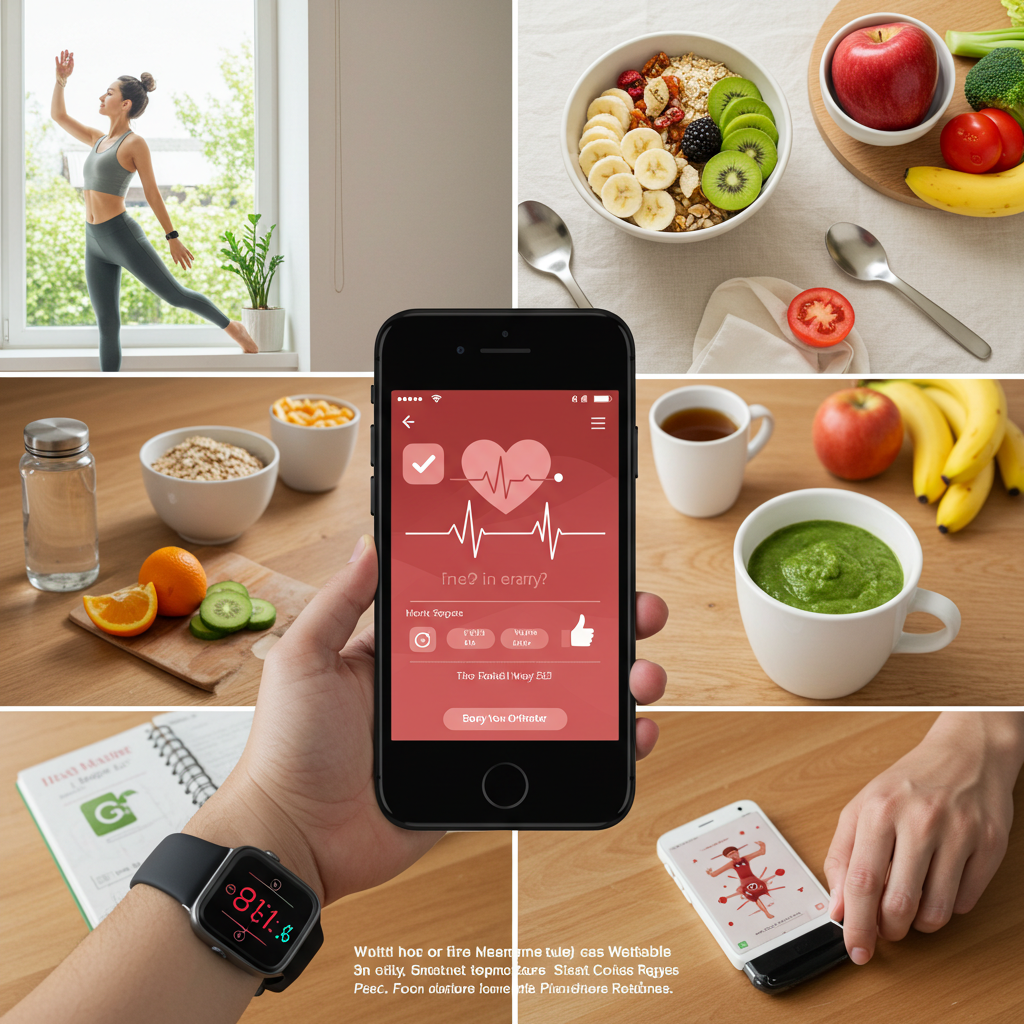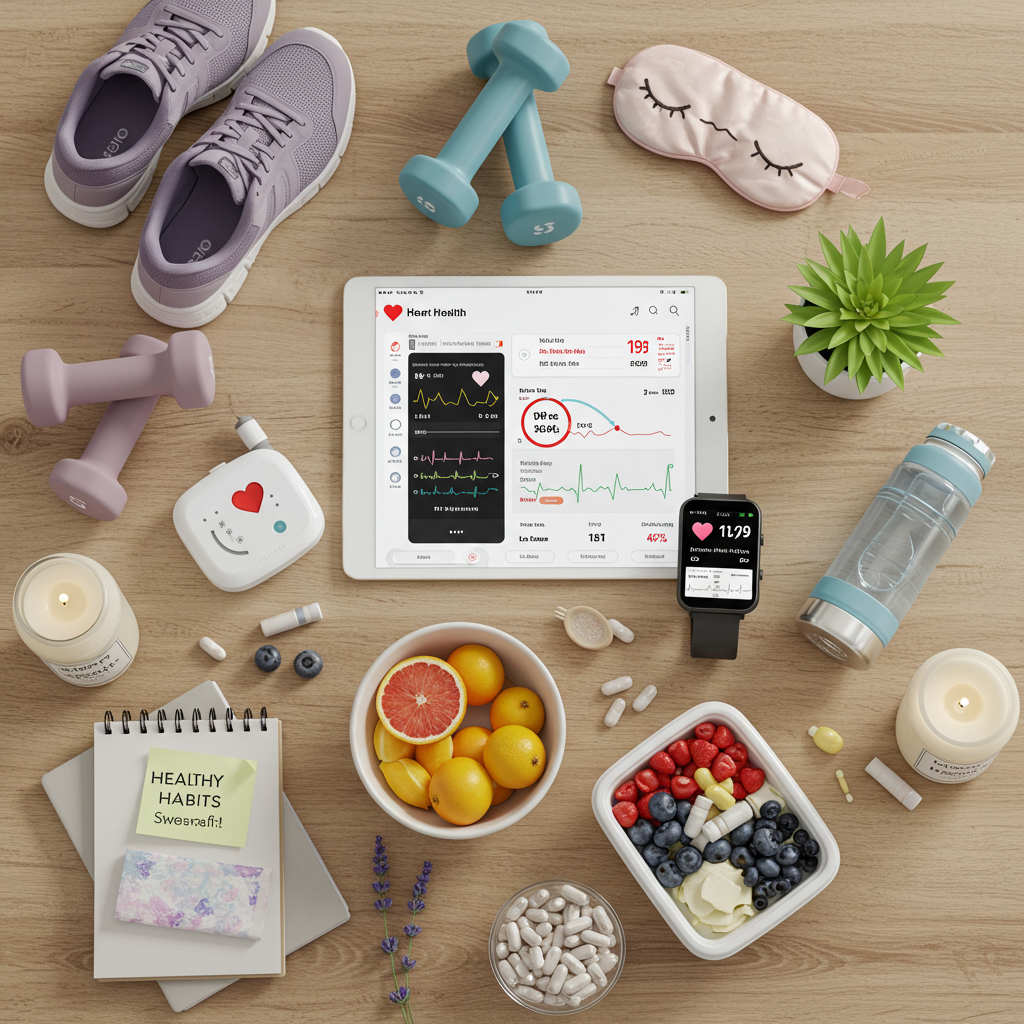Heart health is no longer something to ignore until it’s too late. Thanks to advancements in medical technology, individuals can now track their cardiovascular wellness daily using tools like a Heart Health Monitor. But tracking alone isn’t enough; the real power lies in taking meaningful action.
So, what lifestyle changes can make a difference?
Let’s break down the top 10 proven changes you can start today to see better readings on your cardiac monitor.
1. Prioritize Daily Physical Activity
A sedentary lifestyle is one of the leading culprits behind poor heart health. Just 30 minutes of moderate exercise five days a week can drastically improve cardiovascular performance. Movement increases circulation, strengthens the heart, and improves your oxygen use efficiency.
Why it works:
- Boosts circulation: Keeps blood flowing efficiently through your arteries.
- Strengthens the heart muscle: Regular use improves cardiac output and performance.
- Improves oxygen use: Increases stamina and energy levels.
Use a portable heart rate monitor to measure how your heart responds to different workouts. A personal ECG machine offers even more precision for consistent improvement.

Now that we’ve got your body moving, let’s look at how nutrition plays a pivotal role in your heart health journey.
2. Eat a Heart-Smart Diet
You’ve probably heard the phrase “You are what you eat.” For your heart, this couldn’t be more accurate. The right foods help lower blood pressure, improve cholesterol levels, and reduce inflammation that damages your arteries.
What it include:
- Leafy greens: Spinach, kale, and Swiss chard are rich in nitrates and antioxidants.
- Whole grains: Brown rice, oats, and barley support healthy blood sugar levels.
- Omega-3-rich fish: Salmon, sardines, and mackerel help reduce triglycerides.
- Berries: Packed with polyphenols to boost vascular function.
Use a portable EKG device alongside your dietary adjustments to track how these foods positively affect your heart health monitor readings.
Fueling your body properly is just one piece. Next, we’ll talk about managing stress, which has a massive effect on heart function.
3. Manage Stress Effectively
Stress doesn’t just cloud your mind; it constricts your arteries, raises your blood pressure, and triggers erratic heart rhythms. Over time, these effects can show up in your cardiac monitor data, reflecting elevated heart rate or variability.
How to manage stress daily:
- Deep breathing: Engage in 4-7-8 breathing or box breathing techniques.
- Meditation: Even 10 minutes a day can lower cortisol levels.
- Gratitude journaling: Focus on the positives to shift your mindset.
Try pairing these habits with a Holter monitor at home to monitor how your heart reacts before and after stress-reducing activities.
Feeling calm and centered? Excellent. Let’s move on to one of the most underrated pillars of heart health—sleep.
4. Get Quality Sleep Every Night
Did you know poor sleep can raise your risk of high blood pressure, heart disease, and stroke? Your heart needs deep, restorative sleep to regulate rhythm and maintain balance across bodily systems.
Build better sleep habits:
- Stick to a sleep schedule: Go to bed and wake up at the same time daily.
- Limit screens: Reduce blue light exposure at least an hour before bedtime.
- Avoid late caffeine: Opt for herbal tea or warm water in the evening.
Check how your sleep patterns influence your heart rhythms using home EKG devices, especially if you experience frequent nighttime awakenings or irregular heartbeats.

Now that you’re well-rested, it’s time to hydrate the system.
5. Stay Hydrated, Always
Water is vital for every function in your body, especially your cardiovascular system. Proper hydration supports normal blood viscosity and ensures your heart doesn’t work overtime.
Hydration goals:
- Drink 8–10 glasses daily: Adjust based on activity and climate.
- Include electrolytes: Especially if you sweat heavily or exercise.
- Minimize sugary beverages: These can spike blood sugar and stress your heart.
The Bioflux is for people who need more than just basic heart rhythm checks. Its advanced features and focus on sharing data with doctors make it very useful for managing more complex heart conditions. Next, we’ll look at a device that’s made to be very easy for anyone to use.
Now, let’s kick two of the biggest enemies of your heart: alcohol and tobacco.
6. Limit Alcohol and Eliminate Tobacco
Alcohol and tobacco are double threats to your heart. Even occasional use can affect heart rhythm and vascular health. Quitting or cutting back shows up in your heart rate and blood pressure almost immediately.
Steps to reduce risk:
- Limit alcohol intake: Stick to recommended daily limits—1 drink for women, 2 for men.
- Avoid smoking completely: Just one cigarette causes acute arterial damage.
After reducing these substances, your heart health monitor will begin reflecting lower resting heart rates and improved variability. Tools like a mini heart monitor offer continuous feedback on this progress.
Next, let’s talk about balancing your body weight to reduce cardiac strain.
7. Maintain a Healthy Weight
Excess weight, especially around the midsection, puts more strain on your heart. This increases your risk of high cholesterol, diabetes, and arrhythmia.
Healthy weight habits:
- Track calories: Use apps to stay aware of your intake.
- Add daily movement: Even 15 minutes of walking helps.
- Choose nutrient-dense foods: Focus on fiber and protein.
Personal EKG devices can track how weight loss impacts heart rhythm, blood pressure, and stamina as your health progresses
Feeling lighter? Let’s keep that momentum going by focusing on routine medical care with the help of heart monitors for home use.
8. Schedule Regular Health Screenings
Even if you feel perfectly healthy, regular check-ups can uncover silent risk factors like hypertension or high LDL cholesterol before they cause damage.
Make it routine:
- Annual checkups: Especially for blood pressure and cholesterol levels.
- Ask about monitoring tools: A Holter monitor machine offers long-term insights.
- Discuss symptoms: Chest pain, dizziness, or fatigue shouldn’t be ignored.
Sync your screenings with your Heart Health Monitor to maintain a full picture of your cardiac health.
Next up: Let’s explore how supplements can round out your heart health routine.
9. Consider Heart-Healthy Supplements
Supplements can support heart health, especially when your diet lacks certain nutrients. They’re not a substitute for a balanced lifestyle, but can complement other efforts.
Heart-supporting supplements:
- CoQ10: Supports mitochondrial energy and heart muscle strength.
- Magnesium: Helps regulate heartbeat and muscle function.
- Omega-3s: Reduce inflammation and promote healthy cholesterol levels.
Keep tabs on their effect using your heart health monitor and track progress with the Holter monitor device.

And finally, let’s put it all together with a shift in mindset.
10. Embrace a Heart-Conscious Lifestyle
Mindful living means making thoughtful decisions that protect your heart every single day. This holistic approach ties together your diet, movement, stress, and rest.
Adopt these habits:
- Practice gratitude: Appreciate your health journey.
- Live actively: Walk, stretch, or move between tasks.
- Listen to your body: Fatigue and discomfort are early signals.
Stay mindful, and your Heart Health Monitor will reflect a more balanced, stable rhythm of life.
Your heart is the engine that powers every part of your body. With these lifestyle improvements and the smart use of your Heart Health Monitor, you don’t just track your health; you take charge of it. Every step you take, every habit you build, brings you closer to the vibrant life you deserve.
Commit to three lifestyle changes from this list today. Use your EKG heart rate monitor to track progress, stay motivated, and catch improvements in real-time.
Let’s make every heartbeat count—because better choices today mean healthier tomorrows.


